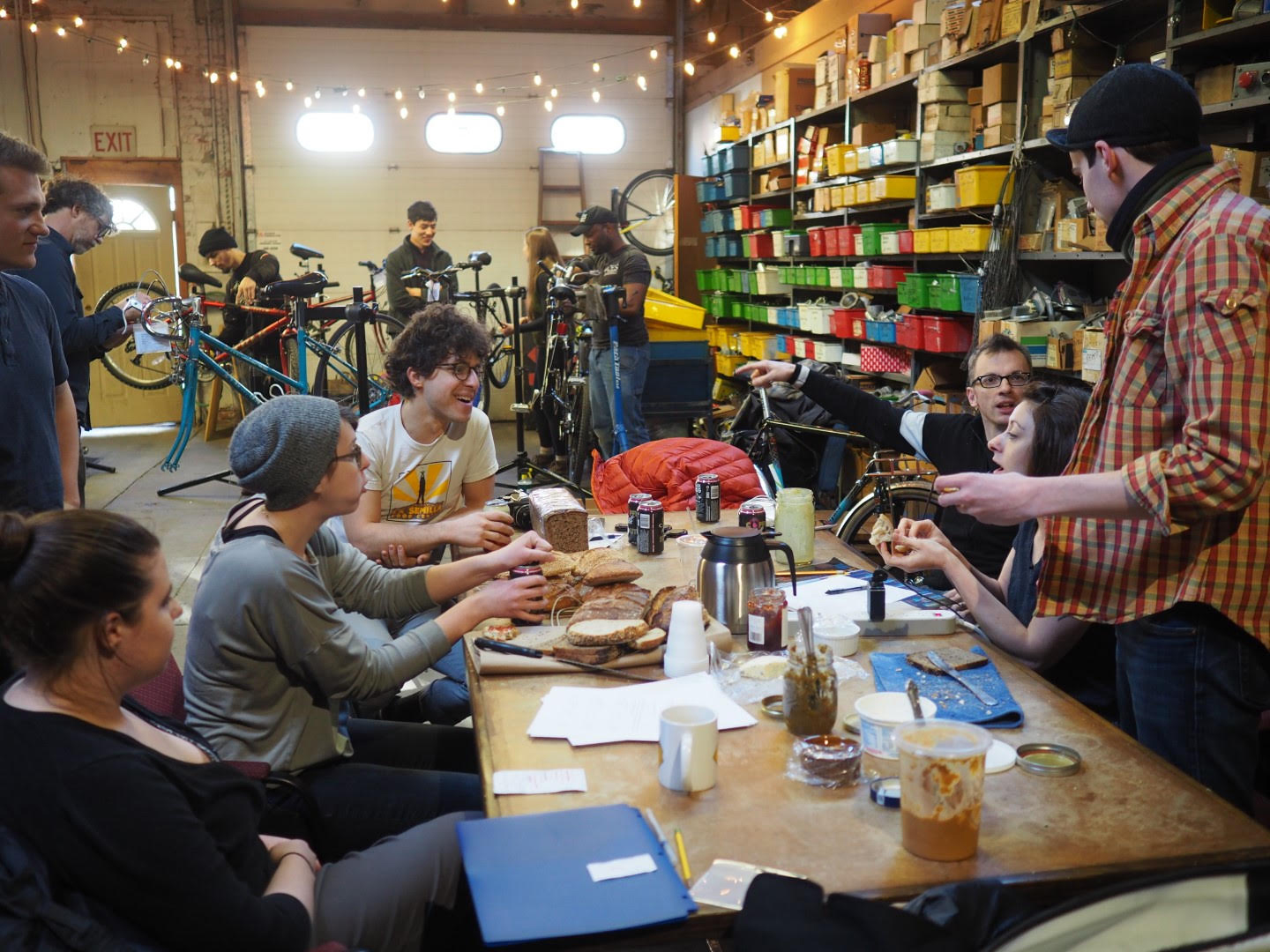
Elm City’s popular bike shop, the Bradley Street Bicycle Co-op, gave out its 1000th bike last month.
In addition to running a growing bike recycling program, the New Haven business serves as a used bike shop and holds open bike repair work hours that act as a community space. The co-op, established in 2015 by New Haven resident John Martin, is working to build a more equitable New Haven through bikes, according to its website.
“The cool thing about bikes is that they’re flattening. You can be rich, poor, black, white, a New Haven resident, a Yale student — it doesn’t matter,” Martin explained. “Bikes are tools for transportation and mean a lot to a lot of people.”
In the co-op’s bike recycling program, individuals, organizations, shops and institutions throughout New Haven and the surrounding region donate bikes to the shop. Yale Facilities also provides some of the donated bikes, Martin noted.
“Facilities managers know when [abandoned] bikes haven’t been touched in months, so they will place a bright orange tag on the bike, let it sit for 48 hours,” he explained. “Then I have five days to come and collect it. I usually hold onto the bike for about two weeks and then it’s the co-op’s.”
After repairing the bikes — with the assistance of volunteers — the co-op either sells or donates the bikes. Donated bikes are typically given to the Connecticut Mental Health Center or Integrated Refugee and Immigration Services, where they are then distributed to individuals in need of bikes, Martin said.
The remaining bikes are sold at the co-op’s used bike store where prices range from $150 to $300 to keep the bikes affordable. According to Martin, the profits are used to fund the co-op.
No experience in bike repair is needed to volunteer at the co-op. Martin said the shop encourages collaboration between volunteers and he inspects every bike himself to ensure its functionality.
Peter O’Neill ’19, who regularly volunteered at the co-op last year, originally visited the shop with the intention of purchasing a bike but found that there were not any available at that time. Martin encouraged him to come by and volunteer anyway.
“I like working with my hands, and there’s not really an easy way to do that around campus. I also like learning about new things and I wanted to learn how to fix bikes,” O’Neill said. “John is very sincere. He wants people to come by, teach each other and create a community around something as simple as fixing bikes.”
The co-op worked with the Yale Undergraduate Consulting Group last year to expand its undergraduate outreach. According to Valentina Wakeman ’20, one of the leaders of the project, the majority of the co-op’s Yale student support comes from the School of Forestry, the School of Management and the School of Divinity.
Wakeman explained that the consulting group’s goal for the co-op was to both raise awareness and expand the customer base. This year, the undergrad consulting team created an undergraduate liaison group for the co-op in order to help get the word out.
“It’s a really interesting business model,” Wakeman noted. “It’s not about profit maximization or cost reduction. The whole point is maintaining the integrity of the co-op. The strategy isn’t to sell more bikes, but to grow both the sales and the donations as much as possible at the same time.”
The co-op also offers open work hours on Tuesdays, Wednesdays and Thursdays from 4–7 p.m. In open work hours, the co-op is opened up to the community as a space for bike repair.
The co-op charges a membership fee of $10 for a day pass, $30 for a three-month pass and $100 for a year pass. Members of the co-op can then use any tools, repair stands or new and used parts to repair their bike. Volunteers receive a free membership to the co-op.
The Bradley Street Bicycle Co-op is located at 138 Bradley St.
Madison Mahoney | madison.mahoney@yale.edu







